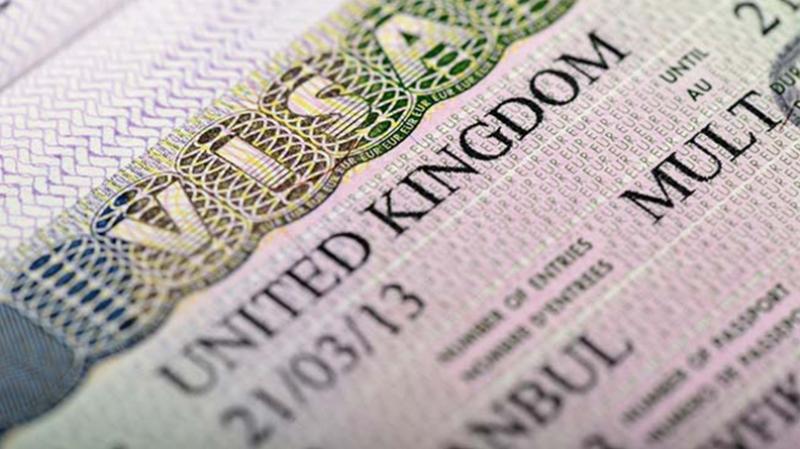 The plight of hundreds of highly-skilled Bangladeshi professionals caught up in a row over their right to live and work in Britain was taken up by cross-party MPs in a Westminster Hall debate in the UK Parliament this week.
The plight of hundreds of highly-skilled Bangladeshi professionals caught up in a row over their right to live and work in Britain was taken up by cross-party MPs in a Westminster Hall debate in the UK Parliament this week.
Labour party MP Lyn Brown raised the case of her east London based constituent, Sadeque, who she said has been the victim of the UK government’s “arbitrary immigration target” and denied indefinite leave to remain (ILR) by the UK Home Office on unfair grounds.
The senior lecturer at a university in the UK is so “worn down” by his harrowing visa ordeal that he plans to head back to Bangladesh, despite his case undergoing a judicial review.
Brown, his local MP for West Ham, said: “Sadeque’s wife and daughter have already left the UK. His second daughter was born in Bangladesh but Sadeque has never met her. Why? Because he cannot go there; if he did, he would not be allowed to return.
“In Bangladesh, Sadeque was the dean of a university faculty. So why will he not just leave, when he is being so badly and disgustingly treated by our government? That is basically what he plans to do.”
Sadeque has lived and worked in the UK for seven years. He applied for ILR in 2016, which was refused by the Home Office because in 2011 he made and accepted a minor error on his tax return. He repaid it in the same year.
Brown added: “It is hardly a mark of bad character. He has been suspended from his job and soon will be forced to withdraw from his part-time Master’s at Oxford University. He volunteers with Amnesty International, Save the Children and UNICEF and promotes IT skills in the Bangladeshi community.”
She highlighted her constituent’s plight as a case study during the debate entitled ‘Immigration Rules: Paragraph 322(5)’, which was called by Scottish National Party’s (SNP) Alison Thewliss to highlight the problems being faced by foreign teachers, doctors, lawyers and engineers under Paragraph 322(5) of the immigration rules on Wednesday.
The discretionary clause is intended to expel terrorists from the UK, but MPs warned it is being “abused” to deny residency rights to professionals over minor and legal amendments to their tax records.
“None of those whom I have spoken to have any issues which would cause them to be considered a threat to national security,” she said.
“A substantial number of refusals appear to be predicated on nothing more than the individual making an honest mistake – and as far as HMRC [Her Majesty’s Revenue and Customs] are concerned, when the correction has been made, the case is closed. Some of the sums involved in these corrections are only a few pounds, and often this was several years ago,” she noted.
UK Home Office minister for immigration, Caroline Nokes, countered the claims made by MPs on behalf of their constituents – mostly Bangladeshi, Indian and Pakistani nationals.
She informed the debate that the first phase of a review of the issue affecting those who had entered the UK on a Tier 1 (General) visa had looked at 281 uses of Paragraph 322(5) and found it had been used correctly in all cases.
The second phase, assessing a further 1,671 cases, are still under review, until which time all such cases remain suspended.
“This process is leaving hundreds in further limbo,” said Aditi Bhardwaj, coordinator of the Highly Skilled Migrants Group, which was lauded by many of the MPs for bringing the issue to light through lobbying and four major protests outside the UK Parliament in the last few months.
The crisis involves professionals entitled to apply for ILR or permanent residency status after a minimum of five years’ lawful residency in the UK. While the Tier 1 (General) visa they used was discontinued in 2011, former applicants were eligible to apply for ILR until April this year if they made up the required number of points on their application.
However, legal experts noted a pattern of many such applications being turned down by Home Office caseworkers citing clause 322(5) of the UK Immigration Act, a discretionary rule aimed at denying convicted criminals and terrorists the right to live in the UK.
The Home Office questioned the “good character” of these professional over apparent differences in their declared earnings to the UK tax department and the Home Office, resulting in hundreds facing potential deportation unless their appeals are accepted.
Nokes told MPs during the debate that an operational assessment of the Tier 1 (General) route in 2010 found that 29 per cent of Tier 1 migrants were in low-skilled jobs and the employment of a further 46 per cent was unclear.
She confirmed that a policy of “rigorous checks” was brought in following the assessment.
“I want to be really clear: we do not have a policy of refusing people for making minor tax errors… We give applicants the opportunity to explain, and we take their explanation and all available evidence into account,” she said.
 National
National
41242 hour(s) 32 minute(s) ago ;
Morning 05:27 ; Tuesday ; Jul 01, 2025
British MPs fight for Bangladeshi professionals in visa row
Send
Aditi Khanna, London
Published : 00:04, Jun 15, 2018 | Updated : 00:08, Jun 15, 2018
Published : 00:04, Jun 15, 2018 | Updated : 00:08, Jun 15, 2018
0 ...0 ...
/ssz/
Topics: Top Stories
- KOICA donates medical supplies to BSMMU
- 5 more flights to take back British nationals to London
- Covid19: Rajarbagh, Mohammadpur worst affected
- Momen joins UN solidarity song over COVID-19 combat
- Covid-19: OIC to hold special meeting
- WFP begins food distribution in Cox’s Bazar
- WFP begins food distribution in Cox’s Bazar
- 290 return home to Australia
- Third charter flight for US citizens to return home
- Dhaka proposes to postpone D8 Summit
Unauthorized use of news, image, information, etc published by Bangla Tribune is punishable by copyright law. Appropriate legal steps will be taken by the management against any person or body that infringes those laws.
Bangla Tribune is one of the most revered online newspapers in Bangladesh, due to its reputation of neutral coverage and incisive analysis.
F R Tower, 8/C Panthapath, Shukrabad, Dhaka-1207 | Phone: 58151324; 58151326, Fax: 58151329 | Mob: 01730794527, 01730794528


